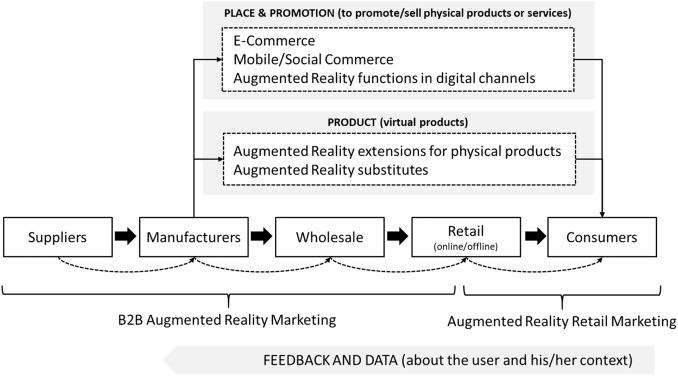What Does a Learning Solutions Consultant Do? Roles, Skills, and Career Guide
Introduction: Unlocking the Role of a Learning solutions Consultant in EdTech
If you are passionate about education and technology, a career as a Learning Solutions Consultant could be your perfect fit. With the increasing integration of educational technology (EdTech) across universities, colleges, and schools, these professionals have become essential in bridging the gap between innovative digital tools and effective teaching. But what exactly does a Learning Solutions Consultant do? This guide explores the core responsibilities, required skills, career paths, practical tips, and benefits of this pivotal role within the academic landscape.
What is a Learning Solutions Consultant?
A Learning Solutions Consultant is an EdTech expert who partners with educational institutions to assess, recommend, implement, and optimize digital learning solutions. Their primary goal is to enhance teaching effectiveness and student learning outcomes using state-of-the-art technology. Whether it’s deploying learning management systems (LMS),integrating multimedia resources,or advising on e-learning strategies,Learning Solutions Consultants are at the forefront of educational innovation.
Core Roles and Responsibilities
The day-to-day duties of a Learning solutions Consultant can vary based on the institution’s needs.However, the basic responsibilities generally include:
- Needs Assessment: Collaborating with faculty, administration, and IT teams to evaluate current learning environments and pinpoint areas for digital enhancement.
- Solution Design: tailoring and recommending EdTech solutions, such as online course platforms, interactive tools, or adaptive learning systems, to meet instructional goals.
- Implementation Management: Overseeing the deployment of new technologies, ensuring seamless integration with existing systems, and minimizing disruption to teaching workflows.
- Training and Support: Conducting faculty and staff workshops, creating user manuals, and providing ongoing technical support to encourage effective utilization of learning tools.
- Evaluation and Optimization: Collecting feedback from users, analyzing educational data, and making improvements to optimize technology usage and learning outcomes.
- Project Coordination: Managing project timelines, budgets, and communication among stakeholders to drive accomplished EdTech initiatives.
- Staying Up-to-Date: Monitoring trends in educational technology to provide forward-thinking recommendations and keep the institution competitive.
Essential Skills for Learning Solutions Consultants
To excel as a Learning Solutions Consultant, certain technical and interpersonal skills are especially valuable. Here are the key competencies:
- Technical Literacy: Proficiency with learning management systems (such as Canvas, Blackboard, or Moodle), content authoring tools, and digital learning platforms.
- Instructional Design: Understanding of pedagogical principles and best practices for developing engaging, learner-centered content.
- Project Management: Ability to plan, oversee, and deliver projects on time and within budget using project management methodologies.
- Analytical Skills: Capability to evaluate educational needs, interpret data, and measure the effectiveness of technology solutions.
- Communication: Strong written and verbal communication skills to explain complex data clearly and build relationships with stakeholders.
- Problem Solving: Creative thinking to develop innovative solutions and troubleshoot issues as thay arise.
- Change Management: Expertise in leading faculty and staff through transitions and fostering technology adoption.
Typical Career path and Educational Requirements
Many Learning Solutions Consultants begin their careers in education, instructional design, or IT support before specializing in EdTech consulting. The path typically includes the following steps:
- Education: A bachelor’s degree in education, instructional design, educational technology, or a related field is typically required. Advanced roles frequently enough demand a master’s degree or specialized certifications.
- Experience: prior experience in teaching, instructional technology, curriculum advancement, or technical support is highly valued.
- Certifications: Professional certifications in project management (such as PMP), instructional design, or specific EdTech platforms can increase employability.
- Ongoing Learning: The EdTech landscape evolves rapidly; continual professional development keeps skills relevant and demonstrates commitment to innovation.
Key Benefits of becoming a Learning Solutions Consultant
Pursuing a career as a Learning Solutions Consultant in the education sector offers numerous advantages:
- Impact: Help institutions adopt technologies that transform teaching and improve student experiences.
- demand: With digital learning becoming mainstream, demand for EdTech consultants in universities, colleges, and schools continues to grow.
- Skill Development: Develop a versatile skill set, combining pedagogy, technology, analytics, and communication.
- Diverse Opportunities: Work with various organizations—from K-12 schools to higher education—on differing projects and challenges.
- Job Satisfaction: Contribute meaningfully to the future of education by supporting digital transformation initiatives.
Practical Tips for Aspiring Learning Solutions Consultants
If you’re interested in breaking into the field of educational technology consulting, consider these practical steps to get started:
- gain Hands-on Experience: Volunteer for EdTech projects within your current institution or participate in online communities and open-source education initiatives.
- Build a Portfolio: Showcase your work with technology-enhanced learning, such as designing digital courses, creating tutorials, or documenting successful implementations.
- Network: Join professional associations, attend EdTech conferences, and connect with industry leaders to discover job opportunities and emerging trends.
- Pursue Ongoing Education: Enroll in workshops or certification programs to deepen your knowledge of instructional technology and project management.
- build Cross-Functional Skills: Learn about IT infrastructure, user experience design, and data analytics to offer holistic consulting services.
- Stay Flexible: Be open to working with diverse clients, adapting to new technologies, and learning continuously.
What to Expect: Work Environment and Career Growth
Learning Solutions Consultants commonly work for universities, colleges, K-12 school districts, or educational service providers. The role might potentially be office-based,remote,or a hybrid arrangement.Consultants often work on multiple projects simultaneously, collaborating with educators, IT staff, and administrators. Career advancement can lead to positions such as Senior Learning Solutions Consultant, EdTech Strategist, Instructional Design Manager, or Director of Digital Learning.
Conclusion: Shaping the Future of Education with EdTech Expertise
The role of a learning Solutions consultant is critical for the digital transformation of education at all levels. By combining technology know-how, instructional design expertise, and strategic consulting, these professionals empower universities, colleges, and schools to deliver engaging, effective, and accessible learning experiences. If you are passionate about driving educational innovation and enjoy working at the intersection of technology and teaching, a career as a Learning Solutions Consultant could be your next rewarding step.

